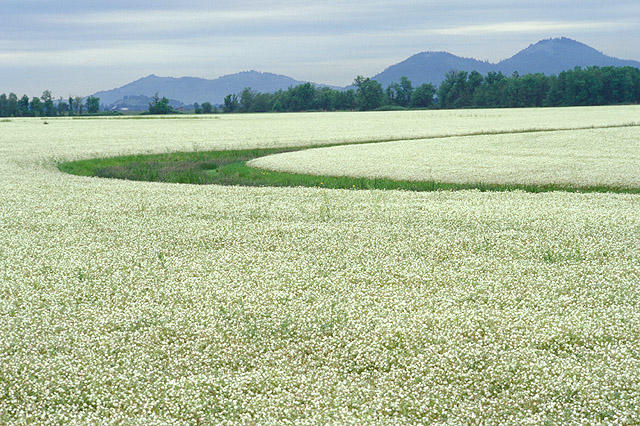We can now test seeds for oil, protein, and moisture content using NMR spectrometry, a non-destructive technology.
Nuclear Magnetic Resonance Spectrometry (NMR), is used for determining oil, protein, and moisture content in seeds of various oil crops. The instrument is calibrated for several oil crops including soybean, camelina, canola, meadowfoam, and euphorbia, and can be calibrated for other species as needed. Tests can be performed in whole seeds or meals.

In the past, researchers have had to send their oil seeds out-of-state for oil and protein analysis. The OSU Seed Laboratory’s recent acquisition of a Nuclear Magnetic Resonance Spectrometer means this service is now available in-state. This provides an advantage to Northwest researchers and commercial producers both in testing turnaround and in the availability of the equipment and service for conducting customized research.
The oil content test estimates the amount of oil that can be extracted from seeds using an industrial extraction method. Direct pressing extracts 90-92%, whereas solvent extractions remove 97-99% of oils contained in seeds.

Sample size is 5-10 grams for all analyses, not for each test, (i.e., for oil, protein and moisture). We can calibrate the NMR for a smaller amount of seeds (i.e., 1-2 grams), if needed. It takes 24 hours to complete the test from the time of receiving the sample. The NMR is a non-destructive method, so seeds can be returned if needed. Please enclose the sample in a moisture-proof (i.e. Ziplock) bag.
We welcome inquiries from researchers worldwide. Please feel free to contact us to discuss your research needs.